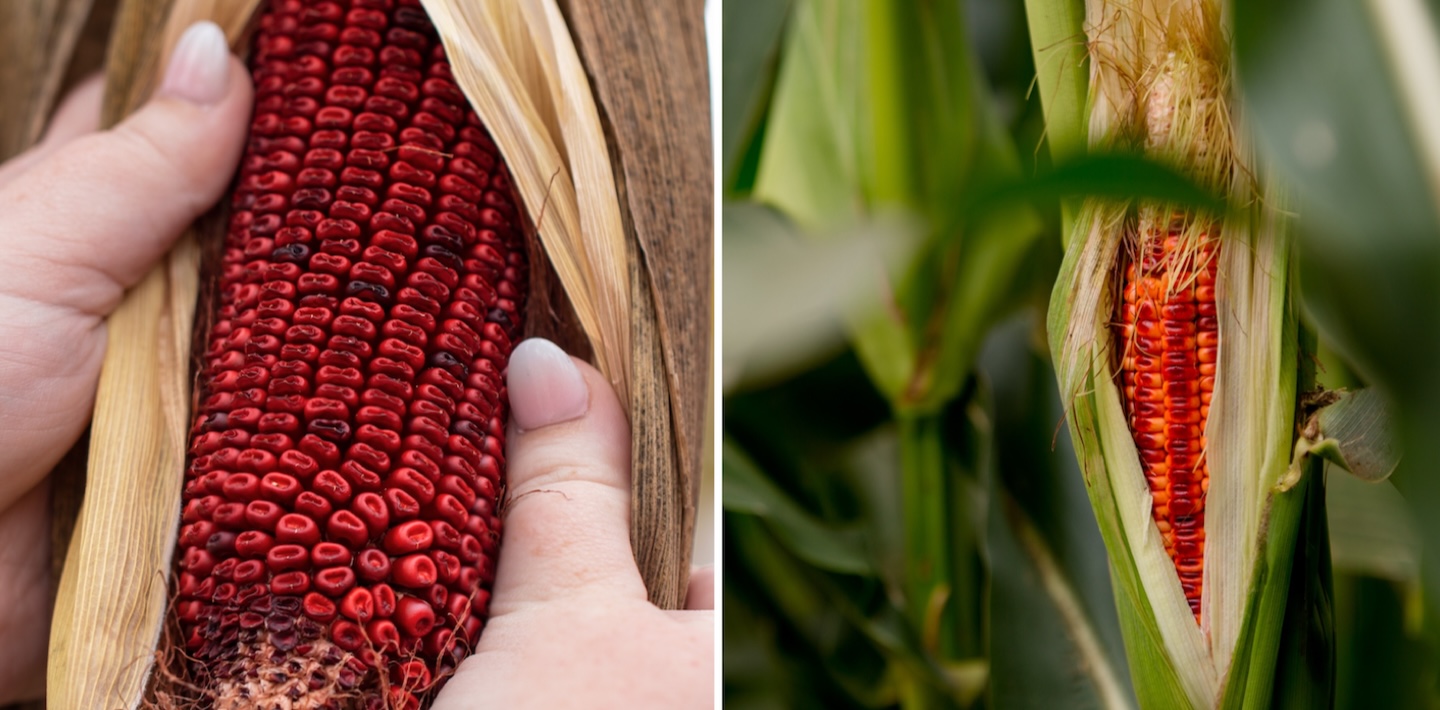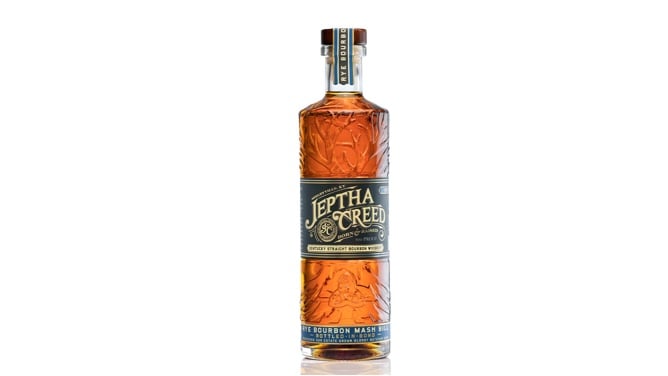Whiskey is no different than any other product when it comes to quality ingredients in, quality finished product out. If the grains that go into a whiskey are the same mass-produced, commodity grains that every other whiskey maker is using, then there’s not a high chance that you’re going to find something all that novel in your glass.
For Jeptha Creed Distillery, a Kentucky distillery that makes bourbon as well as other spirits like brandy and vodka from the ingredients on its farm, novel is standard operating procedure.
“Right now, we’re getting ready to distill Thomas Jefferson corn that came from Monticello,” says Joyce Nethery, master distiller of Jeptha Creed. “It’s referred to as a gourd seed corn and is traditionally used for tortilla flour and cornmeal. We started with a handful of the Thomas Jefferson corn and grew it, then replanted, and repeated that process three times until we had enough yield to make a batch of bourbon. We also have a pink corn bourbon aging, as well as blue, yellow, white and green. There are quite a few different varietals and we are looking forward to seeing how the corn type affects the bourbon’s flavor profile. Many varietals of the corn we are using have been passed down generations and my husband Bruce has even begun breeding our own varietals like, for instance, our Bruce’s Blue that is used in our Red, White & Blue Bourbon that was bred from blue Claridge and blue poppy corn.”
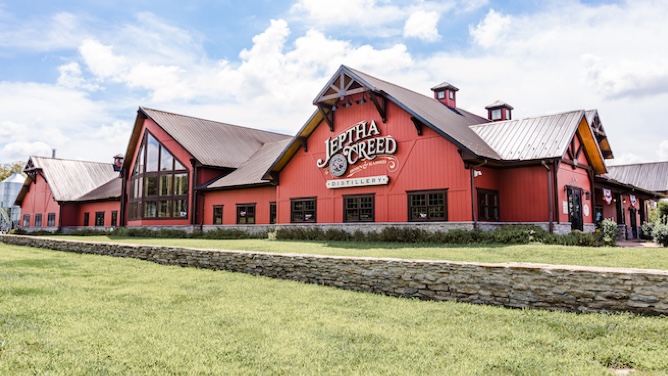
Credit: Jeptha Creed
Agriculture has been part of the Nethery family way of life since the 1700s. Today, the Netherys own about 1,000 acres in Kentucky’s Shelby County, 64 of which are devoted to the distillery. Grains, various corn varieties, berries, herbs, honey hives, and fruit trees–apples, pears, pecans, apricots, and cherries–cover those 64 acres and produce the raw ingredients for Jeptha Creed’s spirits.
Farm distilleries, or at least distilleries that relied on local agriculture, were once the primary source of spirits that people encountered in the United States and around the world. That changed with globalization and crop commodification, which emphasizes high-yield base ingredients. For bourbon, that meant transitioning from a range of regional corn varieties that hold various flavor profiles, to train car loads of the same type of yield-optimized corn sourced from any number of fields across North America.
The pendulum is (slowly) swinging back the other way in the current craft distillery movement. Grain-to-glass distilleries like Laws Whiskey House and Frey Ranch Distillery in the U.S., and Waterford Distillery in Ireland, are making whiskeys that have a clear sense of place based on the types of grains and where they’re grown. Rob Arnold, former master distiller at the Texas distillery Firestone & Robertson and current president of Advanced Spirits, even wrote a book about the importance of grain and where it’s grown when it comes to whiskey: The Terroir of Whiskey.
Still, true farm distilleries are few and far between. Jeptha Creed merges the Nethery family’s agricultural history with a true from-the-land distilling ethos led by Nethery and her daughter Autumn Nethery, co-owner and marketing manager for the distillery.
I caught up with Joyce Nethery over email to learn more about the brand, the importance of being a farm distillery, and the location the Jeptha Creed gets its name for.
This interview has been edited for length and clarity.
Jeptha Creed Bottled-in-Bond Bourbon
A corn-heavy, 100-proof bourbon that showcases the farm’s Bloody Butcher corn variety through a mash bill of 75 percent Bloody Butcher corn, 20 percent malted rye, and 5 percent malted barley. “The distilling process is the same in comparison to yellow, but the biggest difference we’ve seen is in the flavor profile,” Nethery says. “There is a beautiful earthiness that we get from the Bloody Butcher corn. In addition, there is more protein in the Bloody Butcher, so we do get a slightly lower yield when we distill it. Finally, the mash and slop come out to a beautiful red color as it is being distilled.”
Buy: $40.99What're the benefits of being a family-owned farm distillery?
I think being a family-owned farm distillery gives us uniqueness and the ability to differentiate ourselves from other bourbons. From the ground to the glass, we get that Kentucky flavor in our bourbon because we use our land and plant our seeds. We have the versatility to grow other varietals of corn and even branch out and grow other grains for our bourbons. For instance, we have an estate-grown rye that we distilled into a rye whiskey and is currently aging. Being a family-owned farm distillery allows us to branch out into all these different grains and grow things that we are using in our products, even if it’s not the most economically advantageous option.
How has the success of the distillery shaped what’s grown?
Our focus for the last 10 years has been growing what we intend to use for production. Most of that being our Bloody Butcher and other varietals of corn. In the last few years, we’ve been focusing on figuring out ways to grow different grains in Kentucky. Last year my husband grew barley, and right now we’re working out the best way to remove the hull from the kernels. We are having to go back in time to learn how certain things may have been done decades ago, so we can recreate it on a larger scale for our production needs. On the distillery farm, we still have corn, berries, apple trees, herbs, and more that come and go seasonally that we’ll collect for our spirits and bitters.
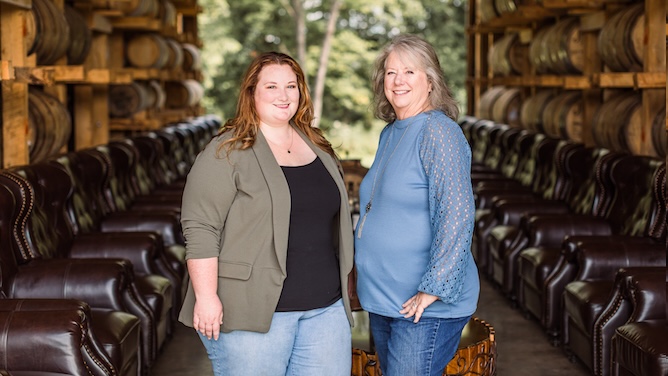
Joyce (right) and Autumn (left) Nethery. Credit: Jeptha Creed
What makes the Jeptha Knob foothills special?
Our farmland on the Jeptha Knobs has been passed down in my husband Bruce’s family for generations. The knobs have always proved to be hearty land to grow on. Recently, Bruce found a book from 1916 that discusses the soil type on the knobs being different than what is throughout Kentucky. Also, it is believed the knobs were a meteorite impact site possibly changing the rock and earth in the region. We haven’t personally noticed a difference in our corn from the fields, but who knows, it might just change the flavor profile of the corn in that area. Something we’re interested to investigate!
Lead image credit: Jeptha Creed
More Drinks
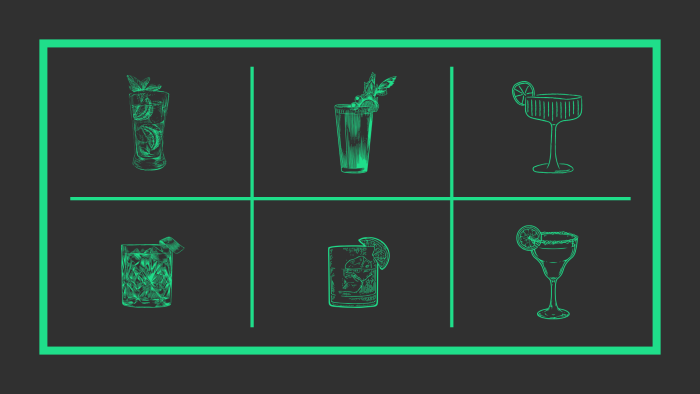
The Classics, Minus the Booze
The 6 mocktails every guy should know how to make.
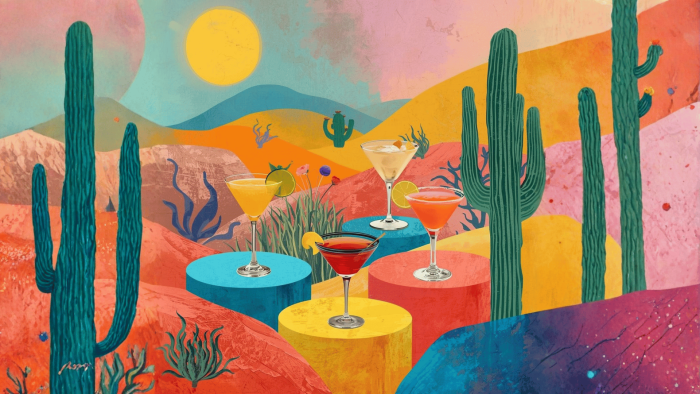
Dry January Isn’t New. The Drinks Are, Though.
A practical guide to the modern sober-curious landscape.

Stop Treating Coffee Like a Chore
A simple way to upgrade your daily coffee without changing your routine. Or even leaving the house.

